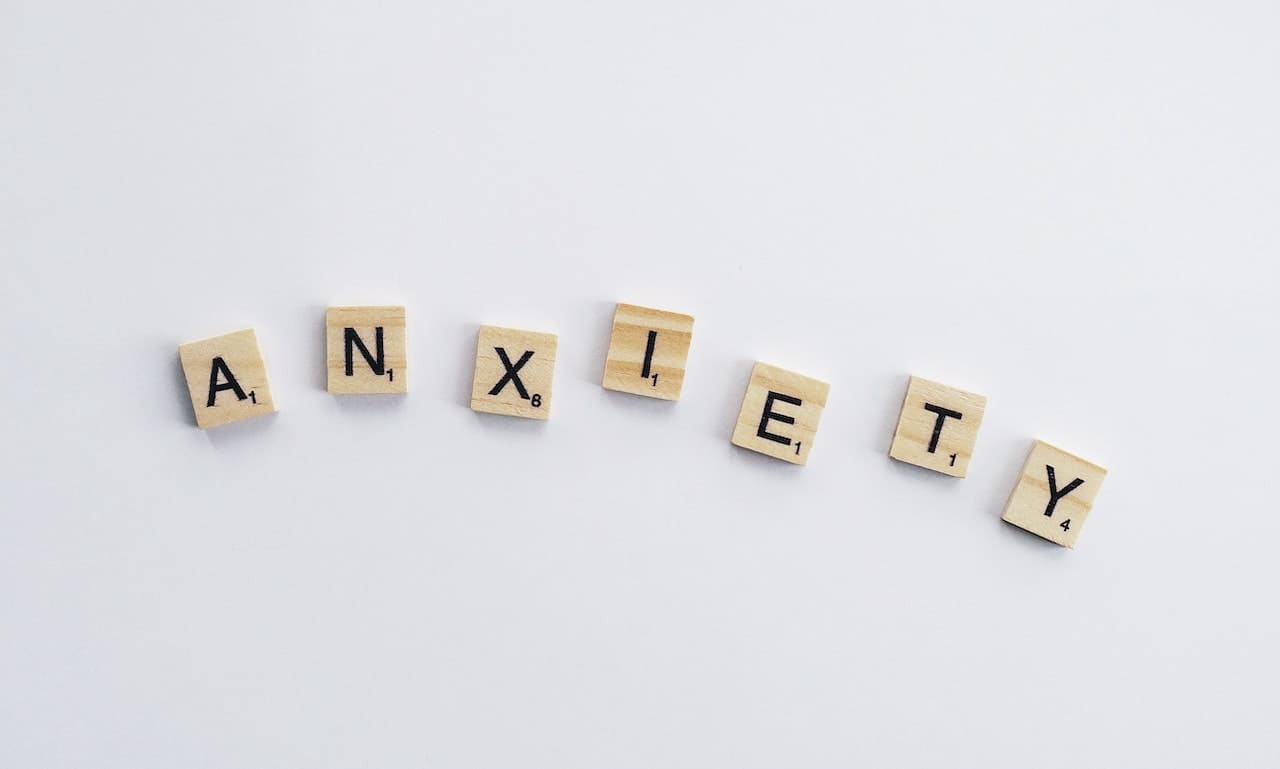How to improve mental health for your well-being: The 6 practical tips
Have you ever stopped in the middle of a hectic day and wondered, "How am I really doing?" Not just physically, but mentally and emotionally?
In our fast-paced world, we often neglect to check in on our own mental health, despite its incredible importance.
So, let's hit pause for a moment and dive into a topic that personally touches all of us: mental health and our overall well-being.
Did you know that millions of people globally grapple with mental health issues? From anxiety and depression to stress from our daily grind, it's clear that mental health disorders are not selective; they can affect anyone.
So, why this article? Well, because it's crucial to break the silence, educate ourselves, and be proactive. We'll explore not only how to spot the red flags indicating our mental health might be on the rocks but also effective, doable strategies to enhance our mental state. Think of this as your go-to guide, yet easy enough to follow and apply in your daily routine.
Our journey through understanding and improving our mental state is not just about preventing or addressing issues—it's about fostering a fulfilling, enjoyable life. Mental health is a cornerstone of our overall health, and nurturing it is not a luxury but a necessity.
So, are you ready to take this step toward a happier, healthier you? Let's embrace this journey together, one supportive, informative step at a time!
Stay tuned, because there's so much to uncover and discuss. Whether you're here for yourself or someone you care about, this conversation could be a game-changer. Here's to making our mental well-being a priority—today and every day that follows!

Source: Pexels
Understanding mental health
Diving deeper into the subject, it becomes clear why understanding mental health is paramount. Mental health isn't just an absence of mental illness.
It encompasses how individuals cope with the normal stresses of life, their ability to contribute constructively to society, and how they realise their own potential. It's the foundation of emotions, thinking, communication, learning, resilience, and self-esteem.
But why is mental health such a cornerstone of human life? It's because mental health acts as a control room for individual existence. When mental health is robust, individuals can make decisions, face challenges, build relationships, and generally enjoy life.
But when it's compromised, every aspect of life feels the impact. It's akin to trying to drive a car without an engine; everything comes to a standstill.
Why is mental health important?
The importance of mental health stretches far beyond the individual. It has economic implications, affecting how individuals contribute to the workforce, engage with society, and support their communities.
Poor mental health isn't just a personal crisis—it can ripple through every aspect of societal structure, from families to economies.
Furthermore, mental health is integral to personal relationships. It shapes how individuals interact, build bonds, communicate, and show empathy. Essentially, it's at the heart of human connection. Without mental stability, maintaining relationships or working collaboratively becomes challenging, if not impossible.
Therefore, recognizing the importance of mental health is the first step in a much larger journey. It's about acknowledging that mental health is deserving of attention, respect, and care, much like any other aspect of human health.
It sets the stage for a proactive approach to mental well-being, highlighting the need for awareness, understanding, and actionable steps toward improvement.

Source: Pexels
Recognizing the signs of deteriorating mental health
Okay let's jump to one of the most crucial steps in our mental health journey: recognizing the signs that things might be going awry. Because, let's face it, you can't address what you don't acknowledge, right?
So, consider this a friendly chat where we pinpoint those red flags, helping you (or someone you care about) to say, "Hey, I might need to take a closer look at this."
1. Emotional symptoms
Imagine your mental health as a garden. Sometimes, despite your best efforts, weeds pop up. Now, these 'weeds' can show up in your emotions, thinking, body, or behaviour.
You might find yourself feeling a bit down more often, getting irritable even at the smallest things, or worrying about stuff that didn't bother you before. These emotional changes can be subtle, friends, but they're super important to catch.
2. Physical symptoms
Oh, and let's talk about those sneaky physical symptoms. Who would've thought that mental health could affect your energy levels, sleep, or even appetite? But it totally does.
Maybe you're feeling tired all the time, sleeping too much or too little, or finding food unappealing (or you're on the opposite end, stress-eating anything in sight). These shifts matter because your body and mind are in this together—they're a team.
3. Cognitive symptoms
Now, onto your noggin, your brain, the command centre. Are you having trouble concentrating, like reading this paragraph feels like slogging through mud?
Maybe making decisions has become an epic struggle, or your memory seems foggy. That's your brain telling you it's under strain and could use a helping hand.
4. Behavioural symptoms
Behaviorally, things can get a bit messy too. Perhaps you're withdrawing from friends or activities you once loved, or you're finding refuge in alcohol, work, or hours of mindless scrolling on social media. These aren't just bad habits; they're distress signals.
5. Combination of symptoms
But here's the kicker: experiencing one or more of these signs doesn't mean you're failing or weak. Far from it. It means you're human, and like every human, you have limits.
The key is to recognize these signs without judgement and understand they're a common cry for help your mind and body put out when they need some TLC.
And guess what? Responding to this call? That's where the real strength lies.
So, let's take these signs as a nudge to focus more on ourselves, showing the same compassion and patience we'd offer a good friend. It's not just about "fixing" what's wrong; it's about nurturing what's right and giving ourselves the best chance to thrive.

Source: Pexels
6 practical tips for improving your mental well-being
Let's talk about some practical, doable, and enjoyable ways to give your mental well-being the boost it deserves. These aren't just tips; consider them tools for your personal wellness toolkit.
1. Crafting a healthy routine
Think of your daily routine as a comfy blanket. It's soothing, right? A consistent sleep schedule, regular meals, and even pencilling in time for leisure can create a sense of normalcy.
It's not about having a strict hour-by-hour plan. Nope! Instead, it's about setting a flexible structure that guides your day, keeps stress at bay, and reminds you to indulge in self-care.
2. The magic of mindfulness and meditation
Ever felt like your brain is a browser with 100 tabs open? Yep, we've all been there. That's where mindfulness and meditation come in. These practices are like a gentle whisper, telling you to 'be here now.'
And guess what? You don't have to be a guru to start! Several apps and online resources are just a click away to guide you toward inner peace. Even a few minutes a day can make a difference!
Read more: Yoga for mental health: 5 key benefits & how to start yoga
3. Building your social fortress
Human beings are social creatures, even the introverts among us. Nurturing relationships with family, friends, or joining groups with like-minded individuals can create a support network stronger than any fortress. It's about quality, not quantity. Having meaningful, heart-to-heart conversations can often be the best medicine.
4. Learning the art of stress management
Stress is like that uninvited guest who shows up at your party - can't avoid it entirely, can we? However, we can learn to manage it. Identifying your stress triggers is step one.
Next up, find healthy coping mechanisms: maybe it's a hobby, journaling, dancing like nobody's watching, or a relaxing bath. Find what feels right for you and make it your go-to stress-reliever.
5. Setting realistic goals
Here’s a little secret - you don’t have to climb mountains every day. Setting achievable goals helps you progress without feeling overwhelmed. It's okay to dream big, but break down those dreams into smaller tasks. Celebrate the small victories; they add up!
6. Embracing hobbies and interests
Remember the things you did before life became all about work, bills, and responsibilities? Rekindle that spark. Whether it's painting, hiking, cooking, or even random DIY projects, hobbies aren't just 'time pass.' They're soul-nurturers and mind-refreshers.

Source: Pexels
When to seek professional help and support
Reaching out for professional help is NOT a sign of weakness. In fact, it's just the opposite. It takes a ton of strength, courage, and self-awareness to say, "I need a bit of help navigating this." Think of it like going to a doctor for a physical ailment. Your mental health deserves the same level of care and attention.
So, what are your options? Well, there are more resources out there than you might realize, and they cater to different needs, preferences, and financial situations.
Therapists and counsellors
These pros are like the friendly guides of the mental health world. They're trained to listen, understand, and help you explore your feelings, pinpoint patterns, and come up with strategies for feeling better. It's all about creating a safe space where you can express yourself without judgement.
Psychiatrists
Now, these are the medical doctors of the bunch. Psychiatrists can dive into therapy like counsellors, but they can also assess whether there might be a need for medication to balance things out. If you're dealing with severe anxiety, depression, bipolar disorder, or other conditions, a psychiatrist can be a key player on your wellness team.
Support groups
Sometimes, there's immense comfort in knowing you're not alone. Support groups bring together folks who are navigating similar challenges. It's a communal give-and-take of advice, empathy, and understanding that can be incredibly healing.
Conclusion
Mental health is not a destination but an ongoing journey. It waxes and wanes, much like the tides of the ocean. There will be days of calm serenity and days when the waves feel like they're crashing way too close to comfort. And you know what? Both are okay. Both are part of the human experience.
What matters most is your commitment to staying anchored amidst those waves. Whether it's by practicing self-care, reaching out to loved ones, diving into hobbies, or seeking professional help, every step you take is a declaration of strength.
You're saying to the world—and, most importantly, to yourself—that you're worthy of happiness, peace, and all the beautiful things life has to offer.
As we wrap up, remember that your mental well-being isn't defined by a checklist or a 'one-size-fits-all' manual. It's your personal journey, and every path is different. Maybe your route involves therapy; maybe it's dotted with meditation, exercise, or hearty laughs with friends over coffee. Perhaps it's a mix of all these and more. That's the beauty of it—this journey is uniquely yours.
In closing, keep this in mind: mental health isn't about having a problem-free life but about building the resilience to bounce back from the problems. It's about cultivating joy in the everyday and finding the extraordinary in the ordinary.
So, go ahead—take a deep breath, muster a smile, and step forward with confidence. Your journey awaits, and it's going to be a beautiful ride.
Friska 🐨
Read more: Best physical and mental exercises for your mind & body
FAQs (Frequently Asked Questions)
1. How do I know if I should seek professional help for my mental health issues?
If you're experiencing persistent feelings of sadness, anxiety, or emotional numbness, or if these feelings are interfering with your work and relationships, it might be time to seek professional advice. Remember, asking for help is a sign of strength, not weakness. You deserve support, and there's no 'right' or 'wrong' time to reach out.
2. Can physical activity really make a difference in my mental health?
Absolutely, it can! Physical activity boosts endorphin levels, often termed as 'feel-good' hormones. It doesn’t have to be high intensity; consistent, moderate exercise can increase your overall sense of well-being, improve mood, and even reduce anxiety and depression.
3. I'm not good at meditation or yoga. What are some other ways to reduce stress?
No worries, meditation and yoga aren't for everyone. There are plenty of other methods to explore. Simple activities like taking a walk, listening to your favourite music, pursuing a hobby, or even tidying up your space can help clear your mind and reduce stress levels. Find what feels right for you, and go with it!
4. How can I make time for mental health in my busy schedule?
It's all about making your well-being a priority. Try scheduling 'appointments' with yourself in your calendar just as you would for other commitments. Even just a few minutes a day dedicated to relaxation or a preferred stress-reducing activity can make a world of difference. Remember, it's not about 'finding' time but rather about making time.
5. Will improving my mental health also improve my relationships?
While everyone’s situation is unique, taking care of your mental health can positively impact various aspects of your life, including relationships. When you’re feeling mentally healthy, you're likely to have more energy, patience, and the emotional capacity to interact with others in a positive, meaningful way.
5. Will improving my mental health also improve my relationships?
Improving mental health is often a trial-and-error process. If you've tried several strategies and still don't feel your best, it's important not to beat yourself up about it. Mental health is complex, and sometimes, we need extra help. Don't hesitate to reach out to a mental health professional who can guide you through personalized strategies that suit your individual needs.
Source

